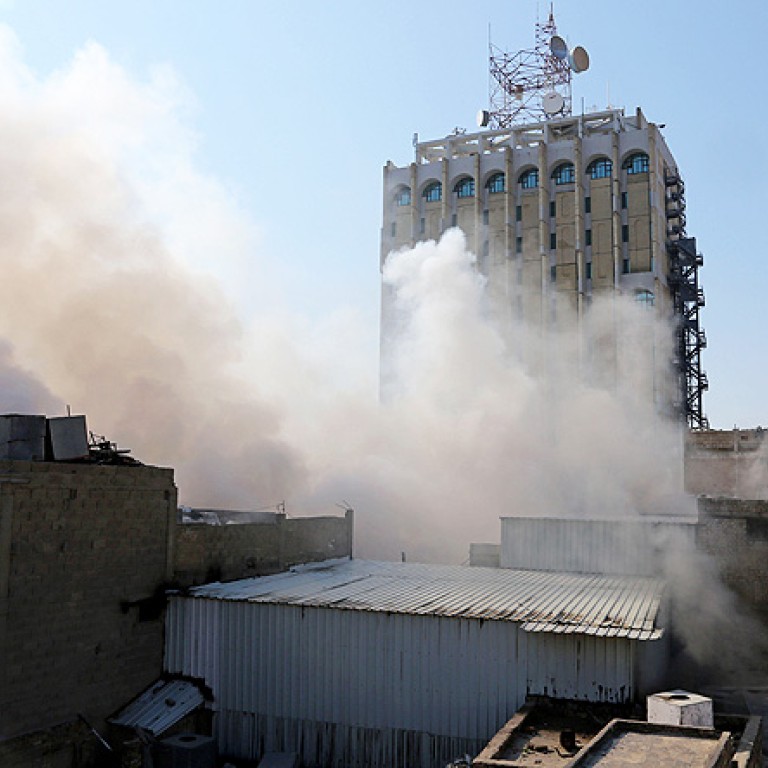
Rush-hour bombs kill 19, injure 30 in Baghdad
Three explosions in Baghdad, including a car bomb opposite the foreign ministry, killed at least 19 people and wounded 30 others on Wednesday, security and medical officials said.
The explosions, in confessionally-mixed neighbourhoods of Baghdad, come amid the worst surge in bloodshed in more than five years, raising fears Iraq is slipping back into the sectarian violence that left tens of thousands dead in 2006 and 2007.

The attack at the restaurant was a suicide bombing, while the other two explosions were caused by vehicles rigged with explosives.
The area surrounding the foreign ministry in central Baghdad has been hit by explosions in the past, notably in August 2009, when a massive truck bomb devastated the building, and again ahead of an Arab summit in the Iraqi capital in 2012.
More than 1,000 people were killed in January of this year, according to government data, as security forces have struggled to curb bombings while also battling jihadists and other militants who have seized territory in the western Anbar province.
Foreign leaders and diplomats have urged the Shiite-led government to reach out to Iraq’s disaffected Sunni minority, but with parliamentary elections looming in April, Prime Minister Nuri al-Maliki has taken a hard line.
No group immediately claimed responsibility for the latest attacks, but Sunni militant groups including the Islamic State of Iraq and the Levant (ISIL) are typically blamed for violence in the capital.
ISIL has also been involved in fighting security forces in Anbar province, a mostly Sunni desert region bordering Syria where militants have for weeks held parts of Ramadi and all of Fallujah, which lies on Baghdad’s doorstep.
Along with ISIL, other militant groups and anti-government tribes have fought forces loyal to the central government.
Security forces and pro-government tribal fighters have made slow progress in Ramadi after days of heavy clashes, and late on Tuesday had retaken several neighbourhoods that had been militant strongholds, according to officers.
Families will be allowed to return to their homes within days, a general leading the operation said, after security forces check the areas for booby-traps and bombs.
In Fallujah, however, security forces have largely stayed out of the city in recent weeks fearing major incursions could ignite a drawn-out campaign with high civilian casualties and heavy damage to property.
The city was a bastion of the Sunni insurgency following the 2003 US-led invasion, and American troops there fought some of the costliest battles since the Vietnam war.
Ahmed Abu Risha, a prominent tribal leader in the Sunni Awakening movement, which allied with US troops against al-Qaeda and now supports the government, said an attack on the city was imminent and urged anti-government fighters to lay down their arms.
The stand-off has prompted more than 140,000 people to flee their homes, the UN refugee agency said, describing it as the worst displacement in Iraq since the peak of the sectarian fighting.
